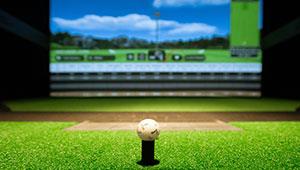
In a survey conducted at The Ultimate Sports Parent, more than 45 percent of sports parents and coaches said that their kids become easily frustrated or angry after making mistakes.
They know kids struggle to let go of mistakes.
More: How Young Athletes Can Deal With Failure
As a parent or coach to young athletes, you must attempt to help them better cope with disappointment and setbacks. Kids who can't handle their frustration are more likely to drop out because they no longer have fun.
What Not to Do
We receive almost daily questions from sports parents and coaches about how to help their athletes cope with frustration. Due to the demands coaches and parents place on their athletes, this is a huge issue for young athletes today.
Many coaches and parents resort to negative reinforcement to rid kids of their anger, frustration, and tantrums during practice and competition. "Just sit out if you can't control your frustration."
More: How to Build Mental Toughness
But punishing kids for getting upset in practice or competition does not work. Do you make your athletes do laps when they get angry or hit their racquet or bat on the ground? Do you threaten to pull kids out of sports altogether if they can't control their outbursts, like I have in the past?
Punishing kids only causes your athletes to get more upset the next time because they know you will come down on them. It does not help kids with the real issue: What's going through your athletes' heads after they make mistakes or lose. Your athletes don't learn the skills that help them cope.
More: Young Athletes and PerfectionismWhy Athletes Get Frustrated
Frustration begins with your athletes' expectations. They demand perfection of themselves or expect to win all the time. If you have a hot head on your team, most likely he or she expects to have a perfect game and never strike out or commit a turnover. They may tell themselves they must score 15 points or go 4-for-4 at the plate.
This rigid thinking sets them up for failure in their eyes—and disappointment—especially when these athletes think they are failing to perform up to your expectations. However, unrealistic expectations is only half the story.
After committing a mistake your athletes are probably hardest on themselves. They'll scold themselves after mistakes: "That was stupid. Why did I strike out?" Or "I can't stand missing a shot on goal." What happens next is a nightmare for parents.
The athlete will lose composure, get angry, and often lose confidence. The coach may even pull the athlete from the game. Sometimes he or she may even give up and tank the game or match. I've personally seen this a lot in baseball and tennis.
Thus, punishing kids for their tantrums in sports does not work. First, you have to help them change their rigid beliefs and expectations that cause the frustration trap. Second, you also have to give your athletes strategies they can use in the moments they start to unravel and when they are self-critical.
More: 3 Sports Psychology Tips for Parents- 1
- of
- 2
About the Author

Get ACTIVE on the Go


Couch to 5K®
The best way to get new runners off the couch and across the finish line of their first 5K.
Available for iOS | Android



Discuss This Article